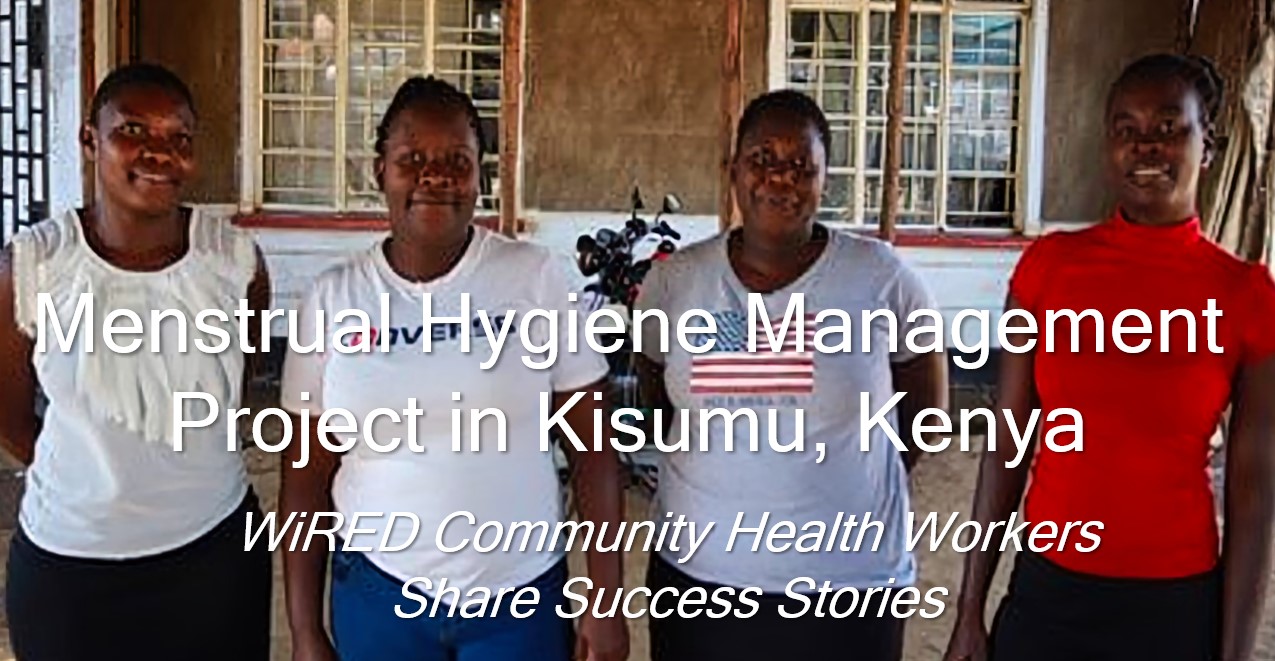By Allison Kozicharow; Edited by Elizabeth Fine
The Menstrual Hygiene Management Project
In Kisumu, Kenya, menstruation is still too often considered a taboo subject teeming with myths and misconceptions. Hygienic management of menstruation and safe disposal of used menstrual materials is little practiced.
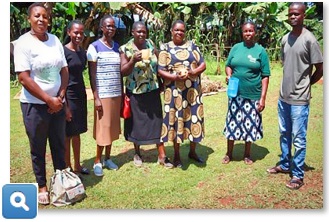 In a partnered effort to effect change, the Kisumu Urban Apostolate Programmes (KUAP Pandipieri) Menstrual Hygiene Management (MHM) Project launched in early 2023. The project is funded by the Western Kenya Sanitation Project (WKSP), working with the support of the United States Agency for International Development (USAID), and backed by the Kenya County Government. Felgonia Atieno, a grandmother and respected leader in KUAP and in the community, suggested that WiRED CHWs be part of the MHM project and even secured a grant for the funding.
In a partnered effort to effect change, the Kisumu Urban Apostolate Programmes (KUAP Pandipieri) Menstrual Hygiene Management (MHM) Project launched in early 2023. The project is funded by the Western Kenya Sanitation Project (WKSP), working with the support of the United States Agency for International Development (USAID), and backed by the Kenya County Government. Felgonia Atieno, a grandmother and respected leader in KUAP and in the community, suggested that WiRED CHWs be part of the MHM project and even secured a grant for the funding.
The MHM project enabled 11 community health workers (CHWs) from the county government — including four WiRED International-trained CHWs — to reach out to target populations in eight counties. CHWs are trained on leading general participation sessions, door-to-door approaches, and the use of WiRED’s six-module series on social behavior change as it relates to health practices.
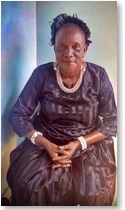
The MHM project’s May 2024 report boasts an unqualified success — as evidenced by examples of the CHWs’ personal stories (see sidebar). Young women and girls, especially those attending school, can now be part of their community’s daily progress without fear of menstrual-related challenges and through the availability of affordable and easily accessible menstrual supplies. More men from these communities are picking up on the importance of MHM, supporting their wives and daughters during menstruation through safe disposal of sanitary pads and mitigating the effects of falsehoods surrounding menstruation. Due to a truly collaborative effort, the MHM project is impacting all the individuals reached in the community in a positive way.
How WiRED’s CHW Training Program Makes New Projects Possible
The MHM project demonstrates the flexibility of the CHW program in which CHWs can expand and apply their skills in specific, needed areas such as MHM — while attending to the overall health of their communities during their general deployment work. CHWs change behavior and attitudes and educate people to understand and take responsibility for their own health.
CHW participation in this project illustrates the high regard others hold for their expertise. Further, it shows that their basic training (the core curriculum) and continuing medical education activities allow CHWs to participate in a broad spectrum of tasks beyond their daily responsibilities. So, they provide not only their usual clinical services and health instruction, but school screenings, community health screenings, vaccination clinics, famine relief by distributing food, health surveillance for the local ministry of health and more. Because of their training, CHWs become multidisciplinary in practice, using their knowledge and skills in a host of health applications that benefit the community and improve the lives of ordinary people in low-resource environments.
WiRED CHWs’ MHM Project Success Stories
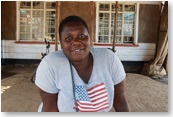 While conducting her routine dissemination of MHM messages, CHW Bunnyce Atieno, met Purity (not her real name), a lady from Salina village whose husband had refused to buy her sanitary pads. Since the lady solely depends on her husband for provisions, she resorted to using old and torn clothes from her closet. This method was neither reliable nor sustainable; therefore, she experienced multiple challenges when her periods were due. Purity was glad to meet Bunnyce, explained her situation and urged Bunnyce to meet with her husband. Bunnyce later met with Purity’s husband and shared MHM messages with him. She explained the importance of men’s participation in MHM and the need for husbands to support their wives when it comes to MHM. The process was painstaking, but later on the husband finally agreed to support his wife. Currently, he’s the one directly buying Purity sanitary pads from Bunnyce.
While conducting her routine dissemination of MHM messages, CHW Bunnyce Atieno, met Purity (not her real name), a lady from Salina village whose husband had refused to buy her sanitary pads. Since the lady solely depends on her husband for provisions, she resorted to using old and torn clothes from her closet. This method was neither reliable nor sustainable; therefore, she experienced multiple challenges when her periods were due. Purity was glad to meet Bunnyce, explained her situation and urged Bunnyce to meet with her husband. Bunnyce later met with Purity’s husband and shared MHM messages with him. She explained the importance of men’s participation in MHM and the need for husbands to support their wives when it comes to MHM. The process was painstaking, but later on the husband finally agreed to support his wife. Currently, he’s the one directly buying Purity sanitary pads from Bunnyce.
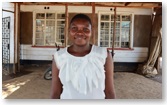 CHW Linet Awuor has been taking a group of young girls from Manyata village between ages 10 and 17 years through the structured six- module Social Behavior Change sessions on MHM. During the discussions, it was noted that the girls used to dispose menstrual waste in pit latrines, which is not a safe disposal method. Linet articulated proper ways of disposal of menstrual waste, and the girls chose burning as a more user-friendly method. After some time the girls met again for another session. Two girls who had tried burning menstrual waste shared the experience and observed how easy it was.
CHW Linet Awuor has been taking a group of young girls from Manyata village between ages 10 and 17 years through the structured six- module Social Behavior Change sessions on MHM. During the discussions, it was noted that the girls used to dispose menstrual waste in pit latrines, which is not a safe disposal method. Linet articulated proper ways of disposal of menstrual waste, and the girls chose burning as a more user-friendly method. After some time the girls met again for another session. Two girls who had tried burning menstrual waste shared the experience and observed how easy it was.
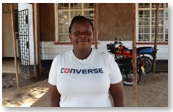 CHW Lency Mmbone who has been conducting MHM awareness in her community came across a bodaboda group, which is a predominantly male taxi group who use motorbikes to offer transport services. The 14 members of the group expressed how they don’t participate in MHM at the household level, stating that it was a taboo for men from their community to even talk about menstruation. Lency took them through an awareness session, focusing on the myths and misconceptions around menstruation and by the time she was finishing, all 14 members of the group agreed to start supporting their wives and daughters in MHM. Nine of the members bought sanitary pads from Lency to take to their wives.
CHW Lency Mmbone who has been conducting MHM awareness in her community came across a bodaboda group, which is a predominantly male taxi group who use motorbikes to offer transport services. The 14 members of the group expressed how they don’t participate in MHM at the household level, stating that it was a taboo for men from their community to even talk about menstruation. Lency took them through an awareness session, focusing on the myths and misconceptions around menstruation and by the time she was finishing, all 14 members of the group agreed to start supporting their wives and daughters in MHM. Nine of the members bought sanitary pads from Lency to take to their wives.
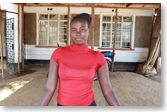 CHW Mary Atieno met a family at Kanyakwar village where Mike (not his real name) never allowed women in his family to work on farms during their menstruation period. He taught them that if one goes against these precautions, crops in the farm would dry up. Mike’s wife loved farming and she’d at times sneak to the farm while on her periods, knowing that her husband was acting out of ignorance. She sought to solve the situation, so, when she met Mary, she invited her to her home to discuss the issue in the presence of her husband. Mike was receptive, giving Mary an easy time to take them through the MHM sessions. At the end, Mike was convinced that he had been acting out of wrong conceptions. From then henceforth he allowed women from his household to attend to farm duties during their menstrual periods.
CHW Mary Atieno met a family at Kanyakwar village where Mike (not his real name) never allowed women in his family to work on farms during their menstruation period. He taught them that if one goes against these precautions, crops in the farm would dry up. Mike’s wife loved farming and she’d at times sneak to the farm while on her periods, knowing that her husband was acting out of ignorance. She sought to solve the situation, so, when she met Mary, she invited her to her home to discuss the issue in the presence of her husband. Mike was receptive, giving Mary an easy time to take them through the MHM sessions. At the end, Mike was convinced that he had been acting out of wrong conceptions. From then henceforth he allowed women from his household to attend to farm duties during their menstrual periods.
Key Objectives of the MHM Project:
- To increase knowledge and awareness on the harmful effect of stigma associated with MHM through training and awareness sessions for 82,911 men, women and girls in the sub-counties of Kisumu Central, Nyando and Kisumu West within a period of 24 months.
- To increase access to affordable MHM products and support services by promoting sale and marketing of single unit sanitary pads and menstrual hygiene friendly facilities to 5,050 women and girls in the sub-counties of Kisumu Central, Nyando, Kisumu West within a period of 24 months.
- To create and strengthen effective partnerships and linkages on MHM with the community, Kenyan government and private sectors to produce an enabling environment for businesses by removing market barriers and enforcing the by-laws on menstrual hygiene within Kisumu County.
- To improve knowledge on safe handling and disposal of menstrual hygiene waste through coordination and working with existing community and businesses that handle sanitary waste products in the sub-counties of Kisumu Central, Nyando and Kisumu West within a period of 24 months.

